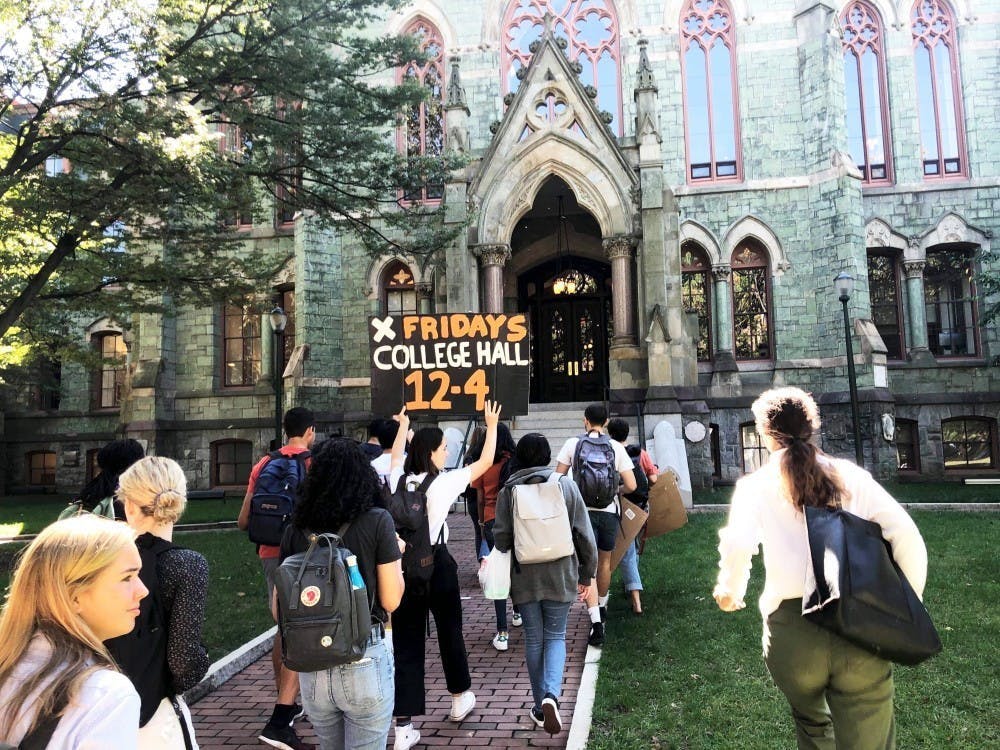Penn to Divest from Fossil Fuels


Late Wednesday afternoon in a private conference room in the Inn at Penn, Amy Gutmann and the trustees of the University of Pennsylvania voted to divest Penn’s entire $14.7 billion endowment from fossil fuels and fossil fuel-related industries.
“We need to focus every inch of our being on climate change, because, if we fail to do so, all of our achievements and progress at this university — and in the world at large — will have been for nothing,” is a thing President Amy Gutmann said after the vote.
The vote was spurred by a multi-year campaign led by Fossil Free Penn (FFP) encouraging the University to divest from climate change inducing industries.
FFP is part of a larger international divestment movement, led by 350.org. Since its inception seven years ago, the campaign has been so effective in moving capital away from the fossil fuel industry that it was cited by Peabody Energy as one of the primary reasons they were forced to declare bankruptcy in 2016.
In Penn’s Climate Action Plan 2.0, Gutmann noted that she wanted Penn to be a model for "environmental stewardship." With the success of divestment having been proven, Penn Trustees — along with Gutmann — agreed it would be impossible to be a model in environmental stewardship should they not divest.
“If we had decided not to divest — in light of only having one climate scientist at this entire university and in light of all of our students trying to work for companies with ties to fossil fuels like Exxon Mobile and BlackRock — it would seem as though my remarks on climate action were just empty words,” noted Gutmann.
Gutmann and her colleagues decided that now, during the Year of Data, was the perfect time to divest.
In a recent survey, 77% of S&P 500 companies noted they will be exposed to negative financial impacts from climate change, resulting in a subsequent hit to Penn's larger investment portfolio. This fact, coupled with the social impacts of climate change, proved to be a driving factor on which Penn's board of trustees decided to act; to ignore it would seem short-sighted.
“Imagine the tragic irony of being so concerned with prepping students for futures in finance, meanwhile our investments were destroying their future. That would be a very bad look for Penn,” noted Janet Haas, a member of the board. “Luckily, that's no longer the case.”
“That would be incredibly embarrassing,” added David Cohen, the chairman of the board of trustees, with a giggle.
Members of FFP were celebrating outside of the Inn at Penn as the trustees were exiting the building Wednesday after the vote.
“I am so proud of Penn,” said Nikki Kim, a Sociology major who has been involved with FFP for three years. “With all of the emphasis put on Wharton, investment banking, and consulting, it was starting to feel like Penn’s primary institutional goal was to create and preserve wealth for already wealthy individuals. I finally feel like this school is listening to me and maybe even listening to the professors they hired to teach me.”
Kim noted that she hadn’t been this proud of Penn since they decided to pay PILOTs to community public schools to make up for their historic mistreatment of the West Philadelphia community.